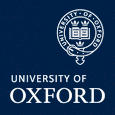Rupert Brooke: I. Peace
Rupert Brooke's sonnet 'Peace' was inspired by his experience with the Royal Naval Division during the evacuation of Antwerp in October 1914. Brooke wrote the sonnet later that month, and by the end of the year had written four more to complete a sonnet sequence entitled '1914'. Preceded by an unnumbered sonnet (written in August 1914), the sequence was first published in the periodical New Numbers (number 4) in January 1915: The Treasure, I. Peace (below), II. Safety, III. The Dead, IV. The Dead, V. The Soldier.
I. Peace
Now, God be thanked Who has matched us with His hour,
And caught our youth, and wakened us from sleeping,
With hand made sure, clear eye, and sharpened power,
To turn, as swimmers into cleanness leaping,
Glad from a world grown old and cold and weary,
Leave the sick hearts that honour could not move,
And half-men, and their dirty songs and dreary,
And all the little emptiness of love!Oh! we, who have known shame, we have found release there,
Where there's no ill, no grief, but sleep has mending,
Naught broken save this body, lost but breath;
Nothing to shake the laughing heart's long peace there
But only agony, and that has ending;
And the worst friend and enemy is but Death.
RB, p. 144
Literary Criticism of 'I. Peace'
Brooke observes the sonnet form (14 lines of iambic pentameter, divided into an octave and sestet), however the octave is rhymed after the Shakespearean/Elizabethan (ababcdcd) rhyme scheme, while the sestet follows the Petrarchan/Italian (efgefg). Brooke has also deviated somewhat from the traditional thematic divisions associated with the octave and sestet: question/predicament and resolution/solution, respectively. The octave begins immediately to herald a great change, and the sestet functions merely to detail it further.
Brooke not only bends sonnet rules, he also tacks on an extra syllable to 10 of the 14 lines, while making line 9 (the beginning of the sestet) a full hexameter.
The images in the first four lines: of religious calling, inspired youth, waking with restored strength and refreshed senses, and the swimmer turning (away from filthiness) and diving into sparkling clean water are images of baptism and absolution that belong to the doctrine of "muscular Christianity." Begun and practiced at Rugby where Brooke was born and raised, "muscular Christianity" was a late-Victorian public-school notion of cleansing and test of manhood afforded by getting out of doors and getting in the game. Some practitioners of this notion felt that the war was the way to cleanse society (and especially young manhood) of what they saw as the effeminacy of Modernism. The second quatrain could describe this reaction against Modernism. However, Brooke was also looking for a fresh- start for himself. He was:
Glad from a world grown old and cold and weary,
after frustrated affairs with Katherine Cox and Noel Oliver, and some near and authentic nervous breakdowns, all of which leads Martin Stephen to wonder if "the war may have at last offered certainty and direction to someone [like Brooke] whose capacity to inflict injury on himself outweighed the damage he could do to others." As part of his clean break, Brooke lashed out especially against his former Bloomsbury friends:
Leave the sick hearts that honor could not move,
And half-men, and their dirty songs and dreary,
And all the little emptiness of love!
The end of the octave ("And all the little emptiness of love!") is the climax of the sonnet. But with the first line of the sestet, Brooke comes back to his theme of absolution and reinforces the dual meaning of the poem:
Oh, we who have known shame, we have found release there,
As we've seen before, "there" is both the war (in a very naively generalized way; as an adventure, as a purifying crusade) and Brooke's own state of mind. In the remainder of the poem Brooke resigns himself to the clean simplicity of (what he sees is) a soldier's life and fate — whether a soldier in war or a soldier of life. 'Peace' is a declaration of self- realization and self-determination. It is at once about conversion and autonomy. One of Brooke's biographers, Christopher Hassall, observed that Brooke "celebrated in exultation this discovery of a moral purpose." The poem must be considered in the context of the war as well as Brooke's tempestuous personal life, which at the time of the poem, he was finally beginning to pull together.
Brooke was a product of "muscular Christianity"; a pre- war poet, expressing the pre-war sentiment of cleansing just as poets as diverse as Robert Graves and Isaac Rosenberg wrote poetry in the early days of the war that celebrated this image of the "Happy Warrior." Even Siegfried Sassoon's early poems display this idea of spiritual cleansing afforded by the war, for example his aptly-titled 'Absolution':
The anguish of the earth absolves our eyes
Till beauty shines in all that we can see.
War is our scourge; yet war has made us wise,
And, fighting for our freedom, we are free.
Sassoon later explained: "People used to feel like this when they joined up' in 1914 and 1915. No one feels it when they go out again.'" Brooke never had the chance to become a true trench poet: he died from blood poisoning on April 23, 1915, two days before the Hood Battalion landed at Gallipoli.
In his obituary of Rupert Brooke, Winston Churchill called the sonnets of Brooke's '1914' sequence "incomparable." Such enthusiastic, but premature appraisals of Brooke's work occasioned equally hasty condemnation. Intelligent judgment considers the poem in its historical context. As Paul Fussell has noted about 'Peace', Brooke's sentiment is "an emotion so innocent and bizarre, so confident of right and wrong and secure in its sense of divine intelligence and design, [that it] is not likely to surface more that once a century."
LitCrit by: Robert Means
English Literature LibrarianHarold B. Lee Library
Brigham Young University


